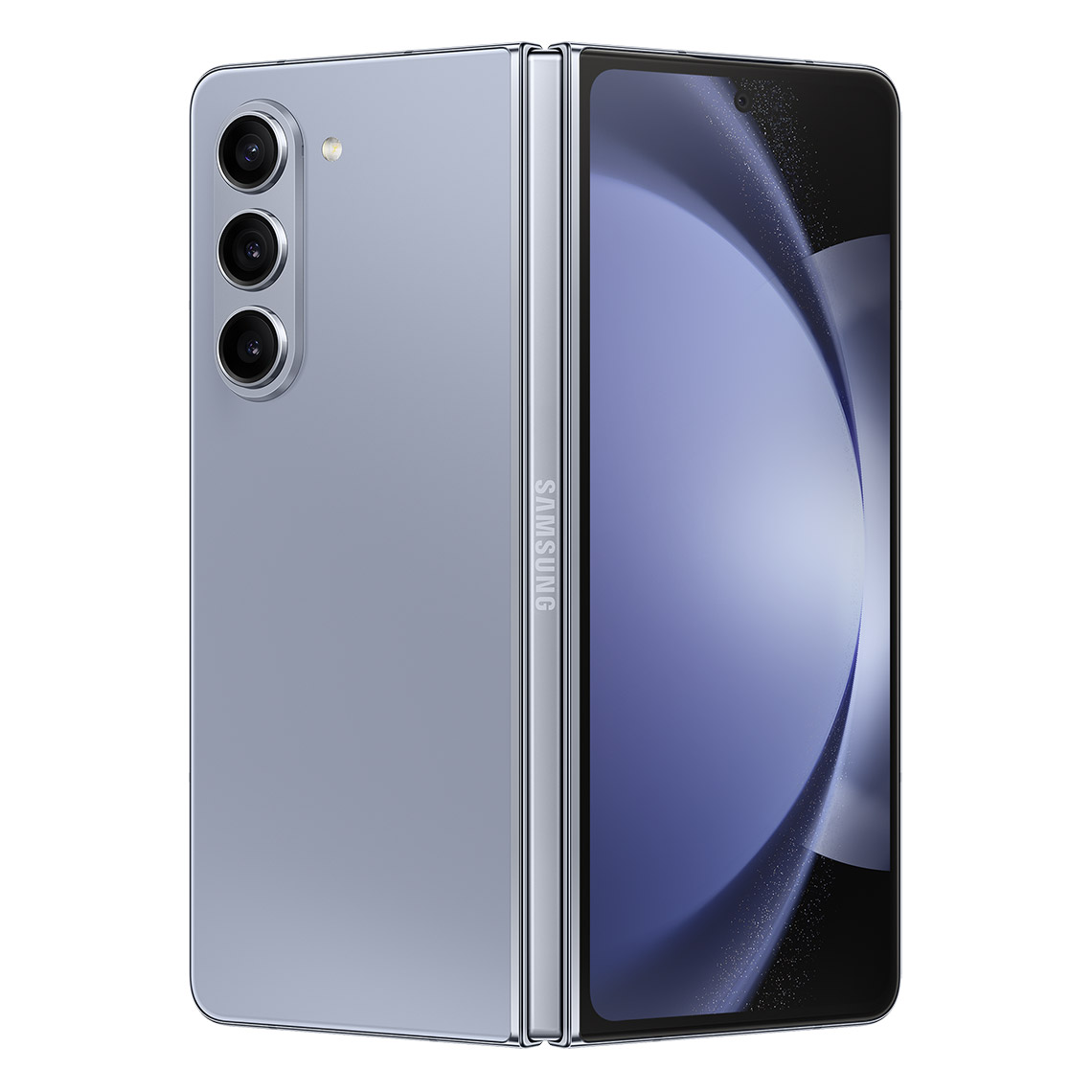
The Samsung Galaxy Z Fold 5 is a worthy successor to the Z Fold 4, bringing a flatter and lighter profile to an otherwise-familiar foldable formula.
For
- It folds flat
- Lighter and thinner
- A better mobile chipset means even snappier performance
Against
- The cover screen now feels too narrow
- The cameras are good but unchanged from the last model
- It's expensive and should include the S Pen in the price
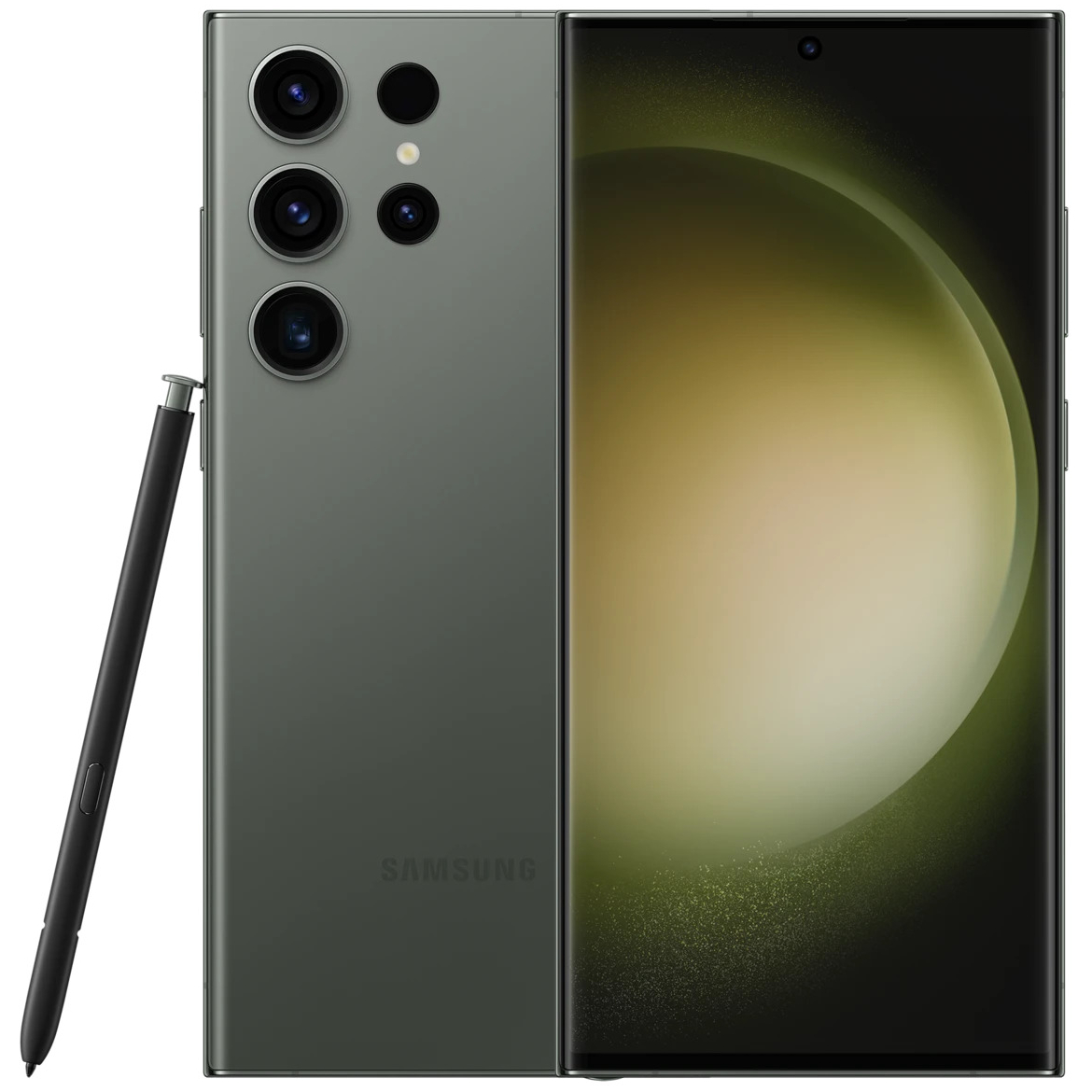
Provided you're not dissuaded by the Galaxy S23 Ultra's steep asking price, in every other regard you'll be getting one of the best phones in the world.
For
- Bespoke Qualcomm Snapdragon 8 Gen 2 chipset
- More base storage than predecessor
- Functional refinements
Against
- Faster charging would have been nice
- Looks identical to predecessor
- Seriously expensive
Samsung's latest foldable, the Samsung Galaxy Z Fold 5, is now out in the wild, but does it have the credentials to topple the company's existing flagship champ, the Samsung Galaxy S23 Ultra?
You'll find our full verdicts on both phones in our Samsung Galaxy Z Fold 5 review and Samsung Galaxy S23 Ultra review, but in this article, we pit the two devices against one another directly.
Below, you'll find comparisons between their respective specs, designs, displays, cameras, chipsets and prices. We've included some final thoughts, too, to help you decide which of these two excellent phones is right for you.
Samsung Galaxy Z Fold 5 vs S23 Ultra: specs comparison
We'll get into the details below, but first, here's just a brief overview of the key specs boasted by the Samsung Galaxy Z Fold 5, alongside the specs of the Samsung Galaxy S23 Ultra, so you can see at a glance how they stack up.
| Galaxy Z Fold 5 | Galaxy S23 Ultra | |
|---|---|---|
| Display: | 7.6-inch OLED / 6.2-inch OLED | 6.8-inch OLED |
| Resolution: | 1812 x 2176 pixels / 904 x 2316 pixels | 1440 x 3088 |
| Refresh rate: | 120Hz | 120Hz |
| Chipset: | Snapdragon 8 Gen 2 | Snapdragon 8 Gen 2 |
| Rear cameras: | 50MP wide, 12MP ultra-wide, 10MP telephoto w/ 3x optical zoom | 200MP wide, 12MP ultra-wide, 10MP telephoto w/ 3x optical zoom, 10MP telephoto w/ 10x optical zoom |
| Front camera: | 10MP and 4MP | 12MP |
| RAM: | 12GB | 8GB / 12GB |
| Storage: | 256GB, 512GB, 1TB | 256GB, 512GB, 1TB |
| Battery: | 4,400mAh | 5,000mAh |
Samsung Galaxy Z Fold 5 vs S23 Ultra: price and availability
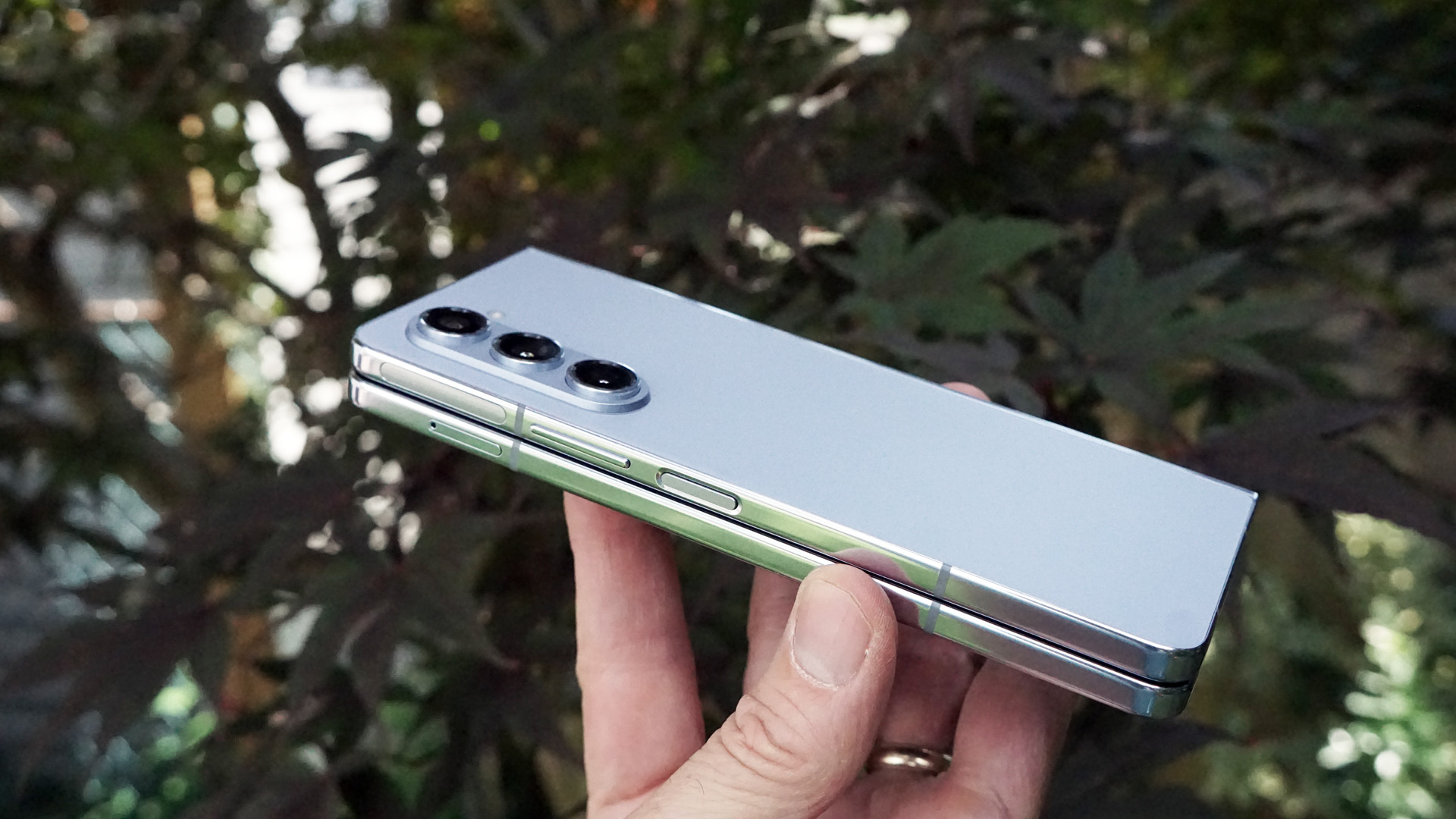
The Samsung Galaxy Z Fold 5 was announced on July 26 at Samsung Unpacked 2023, and began shipping on August 11.
At $1,799.99 / £1,749 / AU$2,599 for the 256GB model, the Galaxy Z Fold 5 is among the most expensive smartphones on the market, although for US customers that price is unchanged from the Galaxy Z Fold 4. The 512GB variant costs $1,919 / £1,849 / AU$2,799, and the 1TB variant costs $2,159 / £2,049 / AU$3,149.
The Samsung Galaxy S23 Ultra, meanwhile, arrived on February 17 of the same year, with prices starting from $1,199.99 / £1,249 / AU$1,949 for the 256GB model. That bumps up to $1,379.99 / £1,399 / AU$2,249 for 512GB, and $1,619.99 / £1,599 / AU$2,649 for 1TB.
Obviously, then, the Galaxy S23 Ultra is the 'cheaper' of the two phones – but these are both extremely expensive handsets.
Samsung Galaxy Z Fold 5 vs S23 Ultra: design
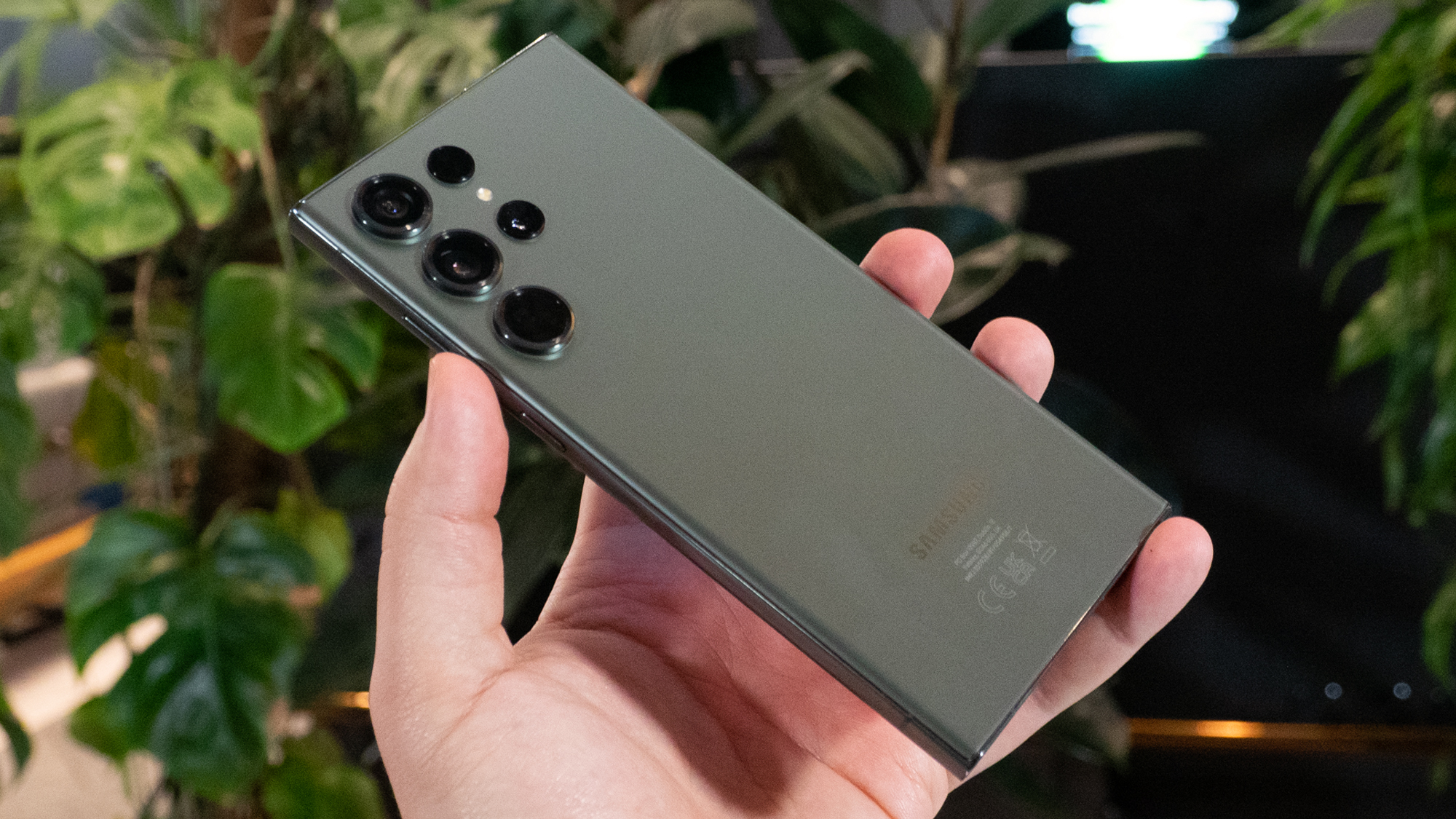
On the looks front, the Galaxy Z Fold 5 is fundamentally different to the Galaxy S23 Ultra. The latter is a super-sized non-foldable phone with a single display, while the Fold 5 is a double-thickness phone that unfurls into a skinny tablet, with two displays to make those dual forms work.
The Samsung Galaxy Z Fold 5 is, therefore, the larger phone of the two, weighing in at 252g (versus the Galaxy S23 Ultra's 234g).
More generally, the Galaxy S23 Ultra's design harks back to the Galaxy Note 20 Ultra, with similar curved side edges, flat top and bottom edges, and a display that covers most of the front. Samsung has refined that design with a flatter display, but it’s a pretty traditional (if stylish) phone.
The Galaxy Z Fold 5 looks a lot like the Fold 4, though the former's waterdrop-shaped hinge allows it to close flatter than the latter (wahey!) at its thinnest (13.4mm versus 14.2mm).
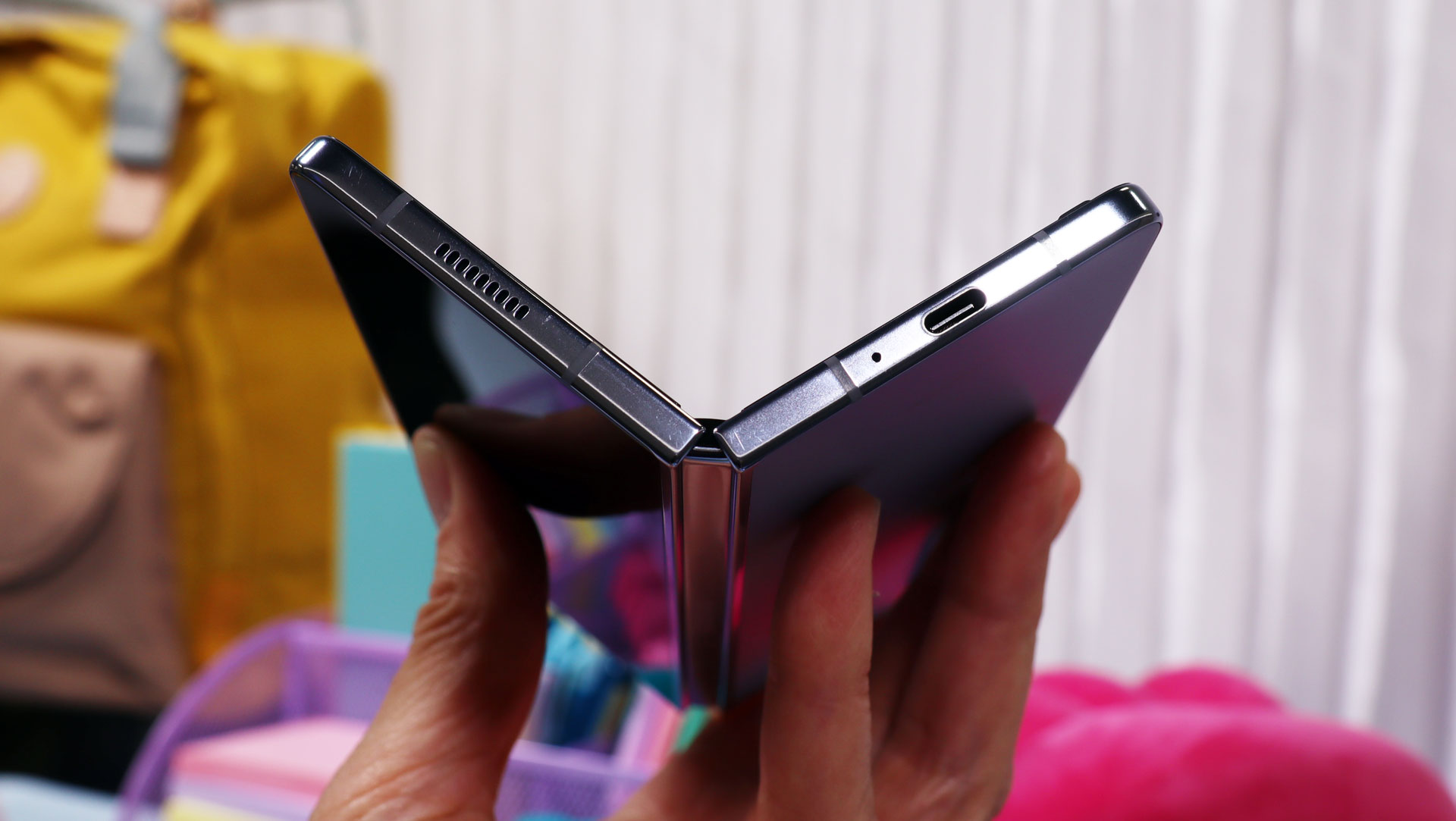
The Galaxy Z Fold 5 (13.4mm) is still way thicker than the 8.9mm Galaxy S23 Ultra when closed, although it's a couple of millimetres thinner when open (6.1mm versus 8.9 mm).
Talking of which, the hinge also benefits the Fold 5 when open, minimizing the crease that runs down the middle of the display. That’s simply not a design issue that the Samsung Galaxy S23 Ultra has to deal with.
Nor does the Galaxy S23 Ultra have to worry about dust ingress, with an IP68 rating making it as resistant to fine particles as it is to water. The Galaxy Z Fold 5 does offer an IPX8 dust and water resistance rating (which is impressive for a foldable), but that's simply not as protective as the Ultra's IP68 rating.
Another key design difference is the fact that the Galaxy S23 Ultra contains a dedicated compartment for its S Pen stylus. The Samsung Galaxy Z Fold 5, on the other hand, mirrors the Fold 4 by supporting a version of the S Pen, but not offering anywhere to stash it.
Samsung Galaxy Z Fold 5 vs S23 Ultra: display
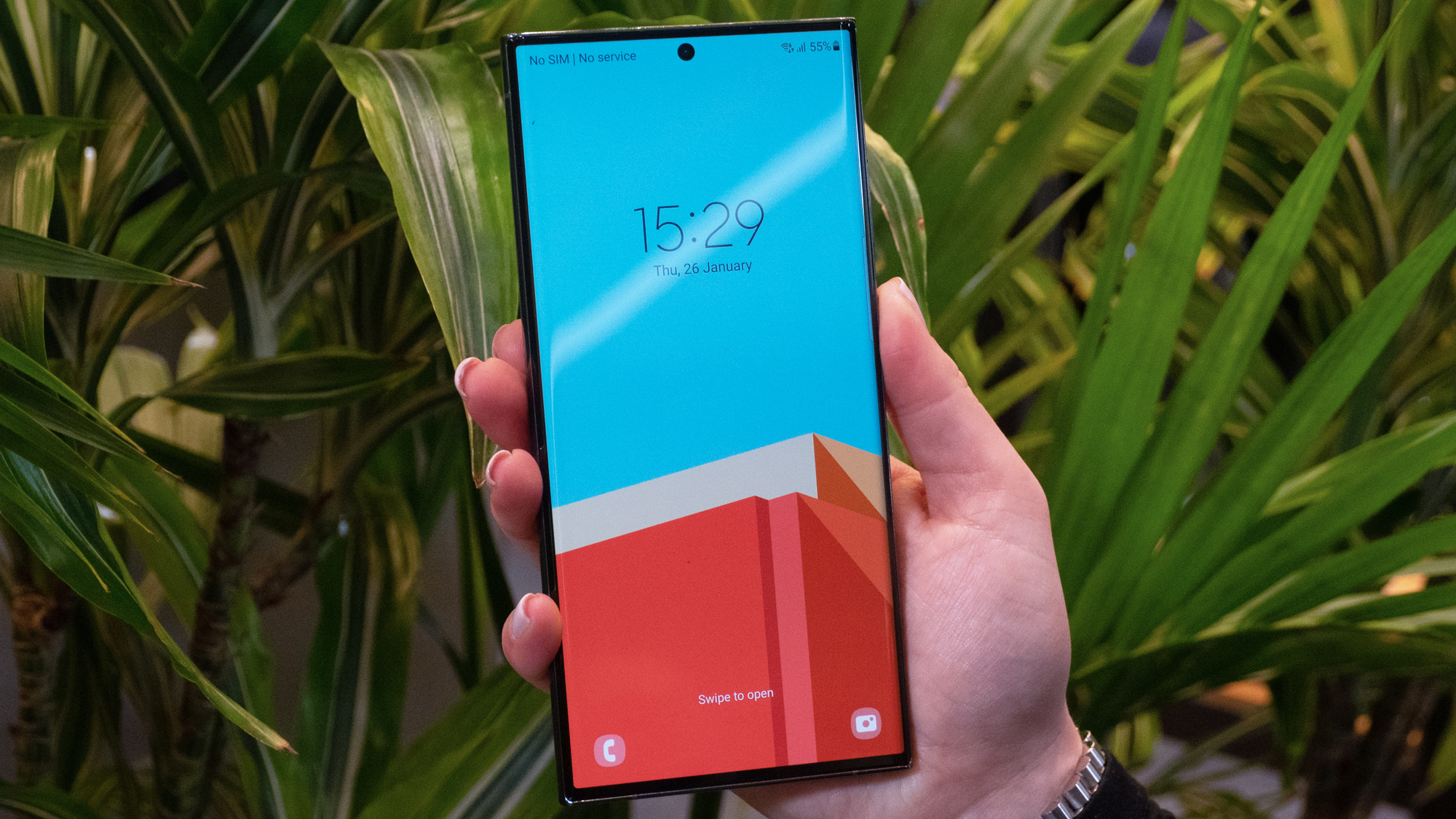
As we’ve already mentioned, the Galaxy Z Fold 5 has two displays to the Galaxy S23 Ultra’s one. All three of the screens we’re dealing with here are markedly different, though.
The Galaxy Z Fold 5’s external display bears the closest comparison to its cousin’s. It's much the same 6.2-inch AMOLED as the Fold 4, with the same 904 x 2316 resolution, super-skinny aspect ratio, and 120Hz refresh rate.
That doesn't match the Galaxy S23 Ultra’s screen, which is a mighty 6.8-inch AMOLED with a 1440 x 3088 (QHD+) resolution and a 120Hz refresh rate. Samsung’s current flagship screen is bigger and sharper, although both displays offer a peak brightness of 1,750 nits.
Of course, the Galaxy Z Fold 5’s party trick brings a much more impressive screen into play. The internal display is a 7.6-inch AMOLED with a 1812 x 2176 resolution and a 120Hz refresh rate, much like the Fold 4. It’s the sheer size of it that sets it apart from the Ultra, not to mention its almost square aspect ratio.
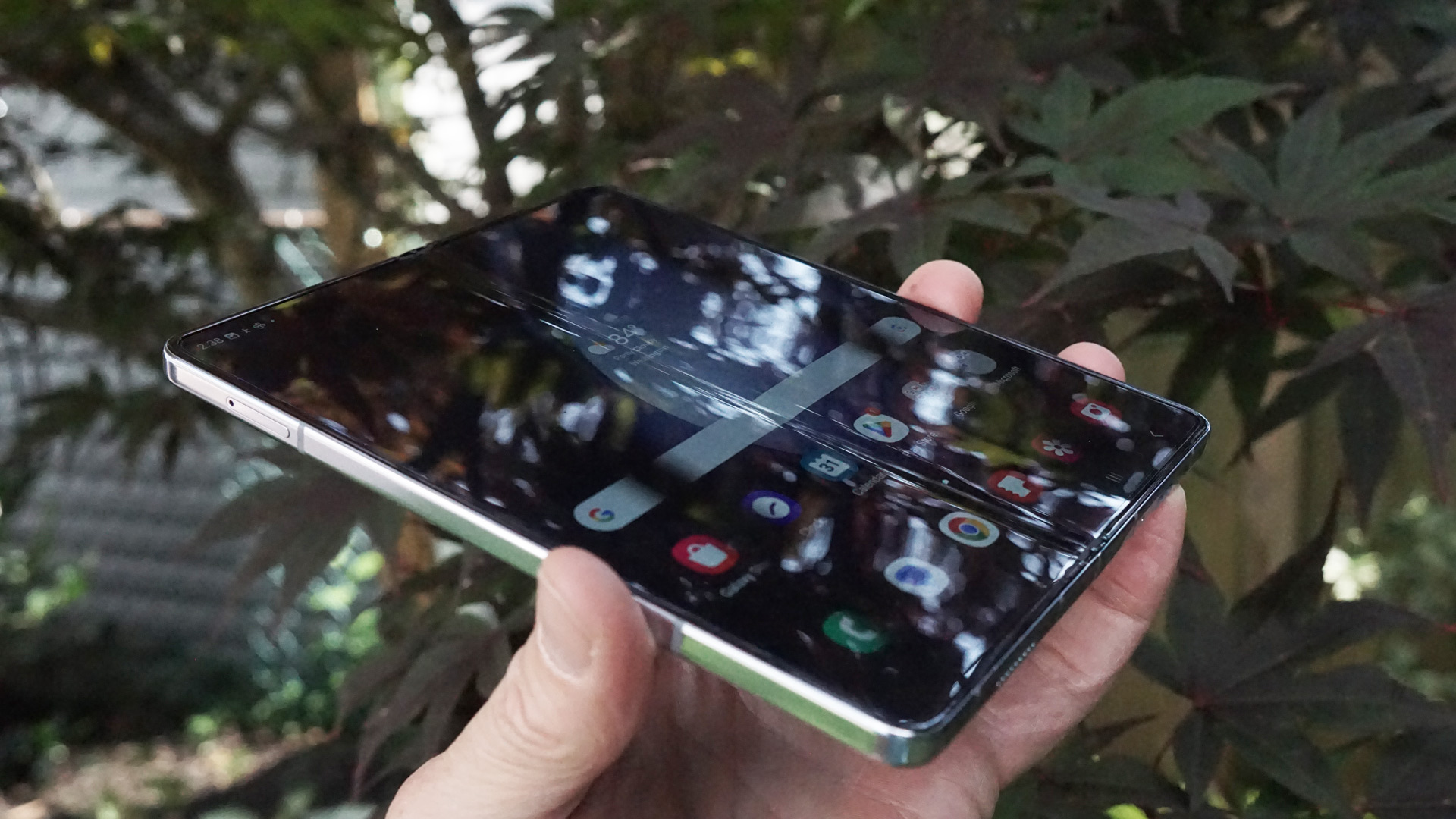
Improvements to the durability of the Galaxy Z Fold 5's internal display are welcome within a foldable context, but it’ll still much softer and more damage-prone than the Galaxy S23 Ultra with its Gorilla Glass Victus 2 cover. That’s just the nature of foldables right now, although they do have the natural protection of being able to close.
One way in which the Galaxy Z Fold 5's internal screen one-ups the Galaxy S23 Ultra’s is with its under-display selfie camera, which enables the whole screen to be given over to content. The Galaxy S23 Ultra has to interrupt that picture with a punch-hole selfie camera.
Samsung Galaxy Z Fold 5 vs S23 Ultra: cameras
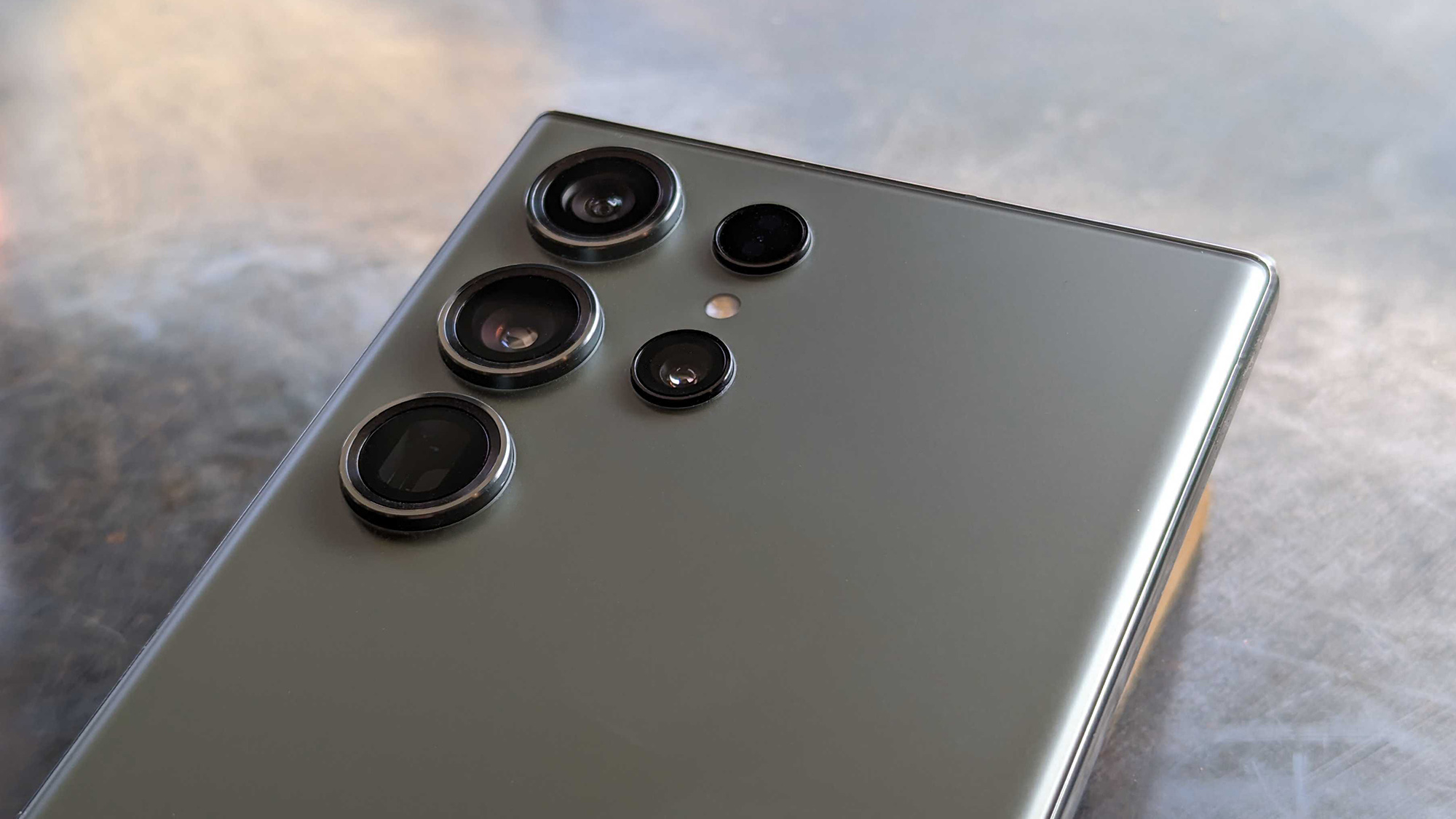
If we can state anything with absolute confidence, it’s that the Samsung Galaxy S23 Ultra has a better camera system than the Samsung Galaxy Z Fold 5. With the way that foldables have to play component Tetris simply to squeeze everything into an awkward form factor, the camera is always compromised.
The Samsung Galaxy Z Fold 5's camera system is identical to that of the Fold 4, which is perfectly decent, but nowhere near the quality of the Galaxy S23 Ultra. That’s no disgrace. The Ultra is simply one of the best camera phones on the market.
Specifically, the Samsung Galaxy Z Fold 5 has a 50MP main sensor, a 12MP ultra-wide, and a 10MP telephoto capable of 3x zoomed shots. Compare that to the Samsung Galaxy S23 Ultra’s huge 200MP main sensor, 12MP ultra-wide, and dual 10MP telephoto lenses (with one offering 10x optical zoom), and it was never going to to be close.
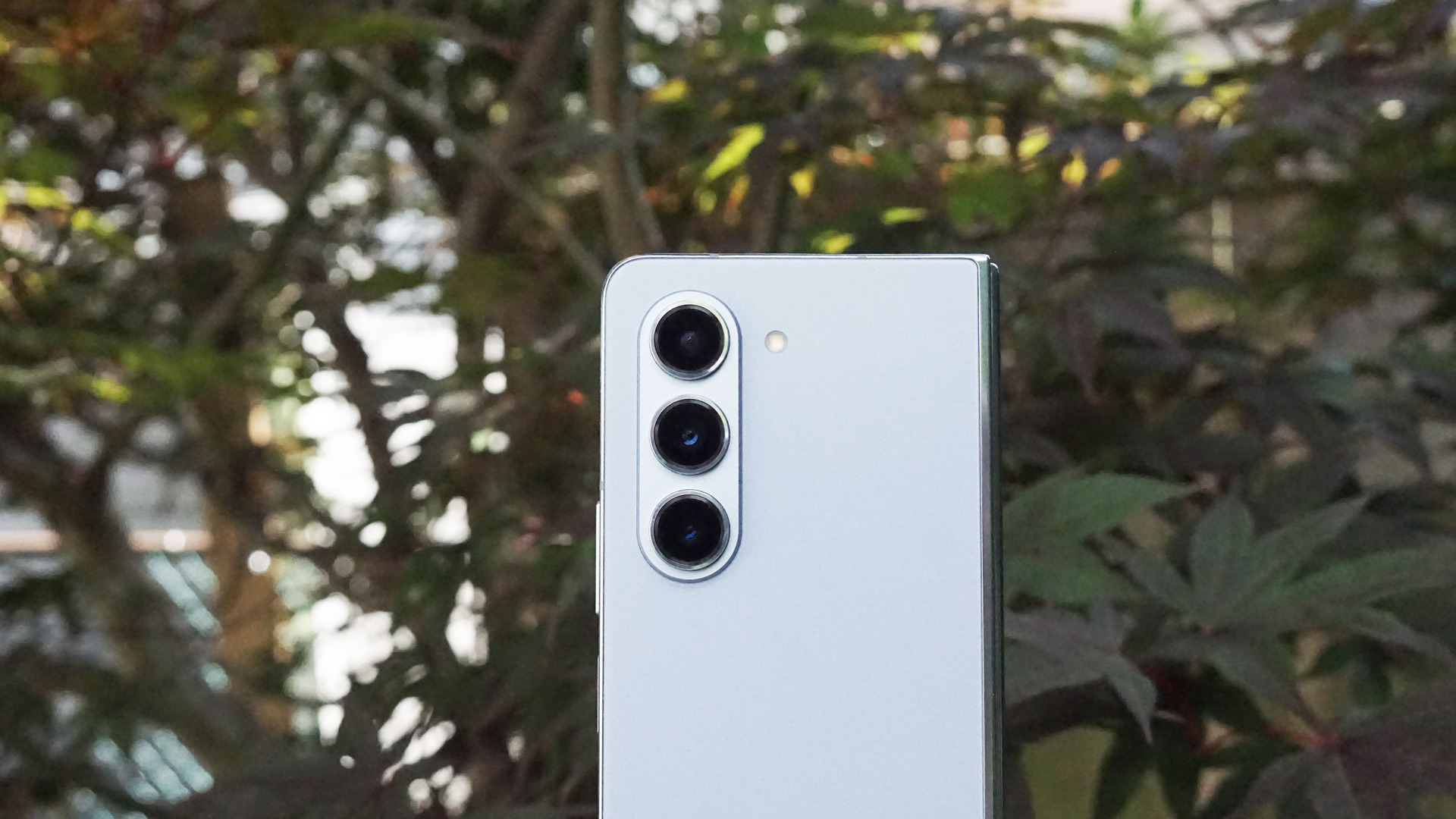
Of course, one advantage the Galaxy Z Fold 5 has is with selfies. No, the 4MP internal camera isn't anything groundbreaking, nor even a great advance for the 10MP external selfie camera. But the nature of such foldables is that you can easily use the main camera for selfies, with the external screen acting as a view finder. That’s a trick the S23 Ultra can’t pull off.
Samsung Galaxy Z Fold 5 vs S23 Ultra: performance
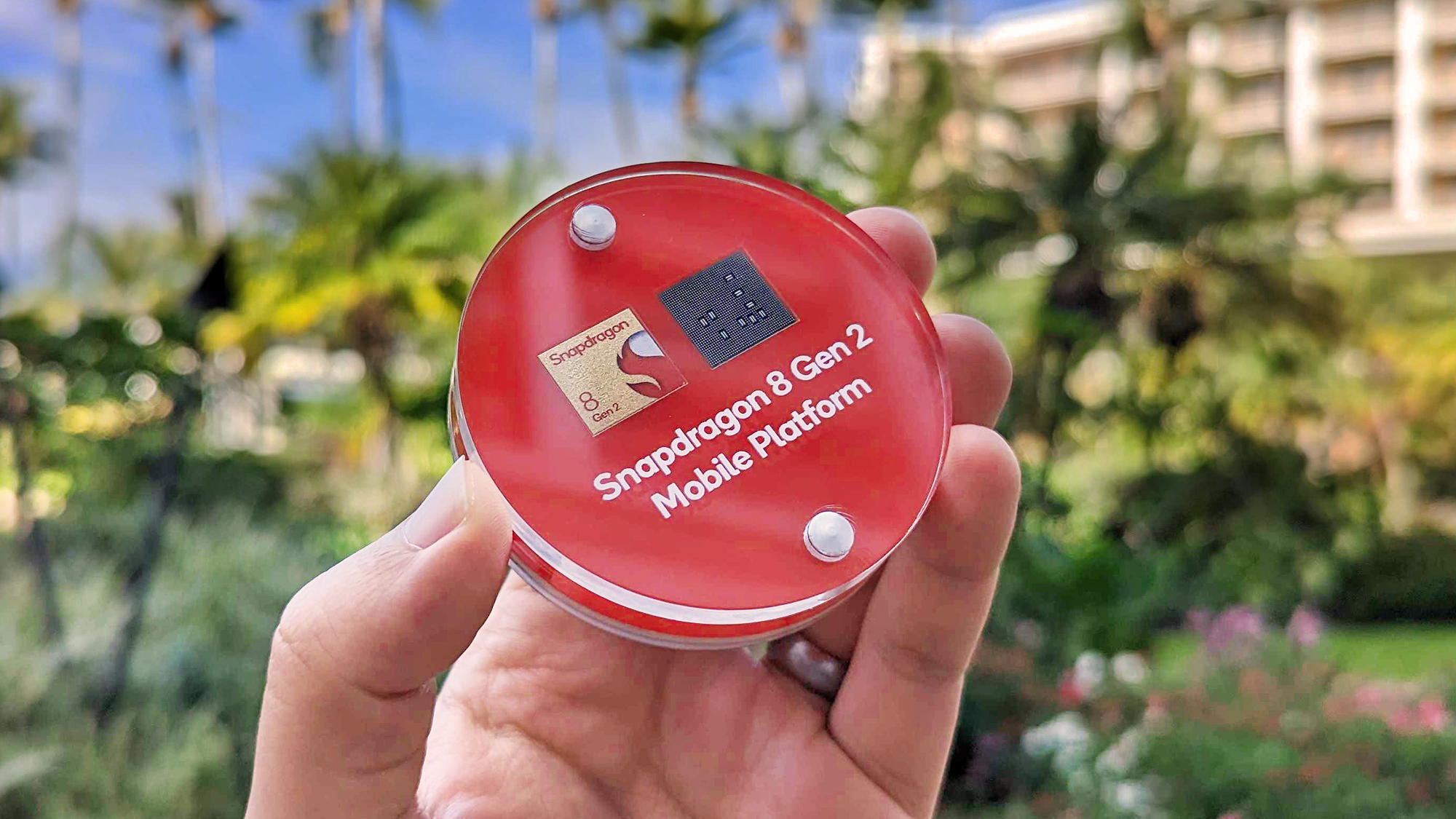
So far, so completely different, but if there’s one area in which there's absolute parity, it’s performance.
That’s because the Samsung Galaxy Z Fold 5 features the exact same Snapdragon 8 Gen 2 chipset as the Galaxy S23 Ultra. This is the ‘For Galaxy’ version of the chip, too, which has a slightly higher clock speed than on rival phones.
With both phones maxing out at 12GB of RAM, and with shared storage capacities (256GB, 512GB, and 1TB), there really is nothing between them in terms of baseline specs.
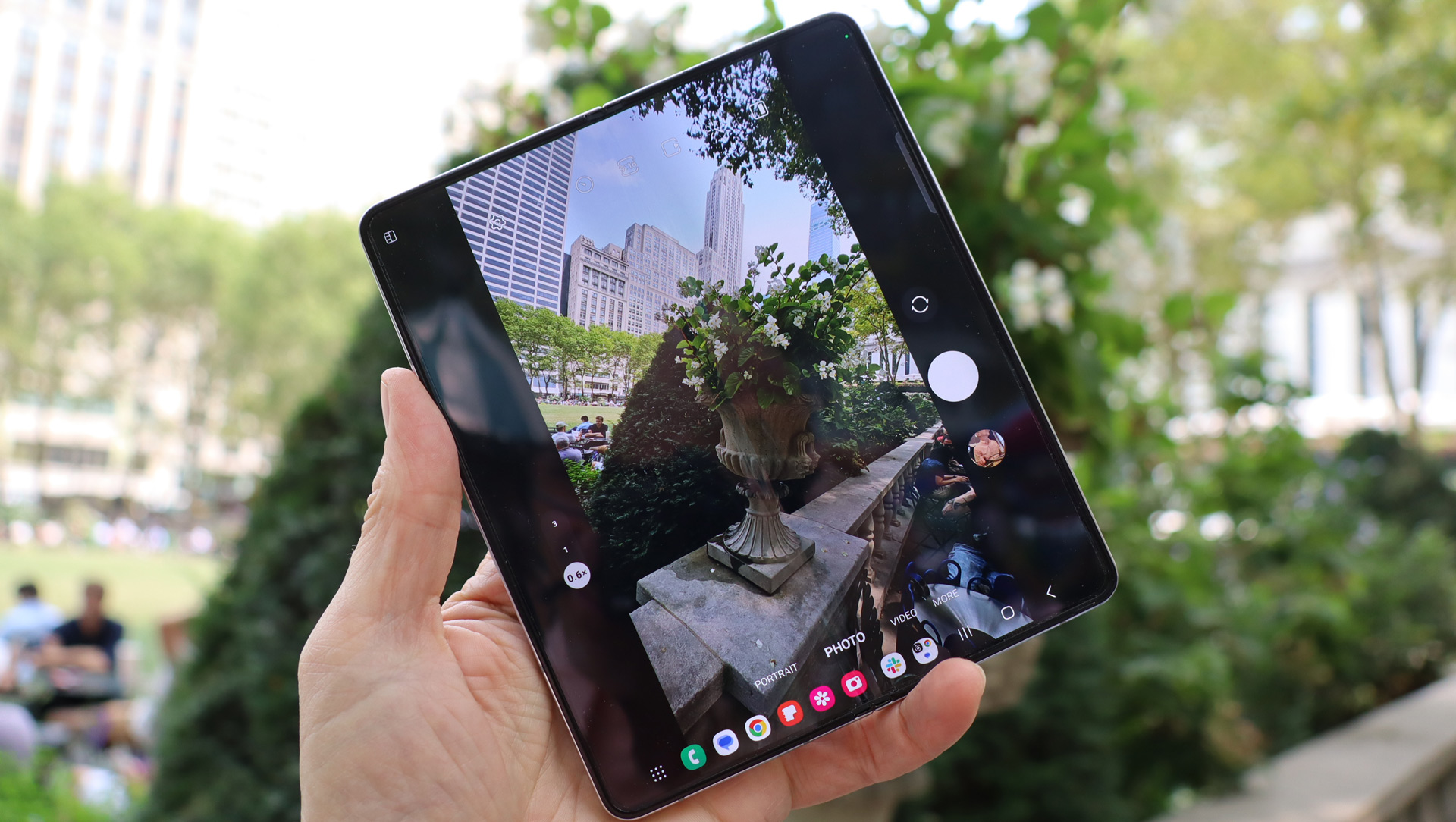
We found that the Samsung Galaxy S23 Ultra had "exceptional performance" in our review, so we have no reservations about Samsung adopting exactly the same setup for the Galaxy Z Fold 5. Even with that higher price tag, this is the fastest chipset available to Android phones right now.
The only slight disappointment is that the Fold 5 doesn't benefit from the slightly faster Snapdragon 8 Plus Gen 2 revision that’s almost upon us. After all, the Fold 4 packed the equivalent ‘Plus’ revision of the previous Qualcomm flagship chip.
The Samsung Galaxy Z Fold 5 also features improved speakers and haptics over its predecessor, the Galaxy Z Fold 4, but the Galaxy S23 Ultra's audio performance is undeniably top-of-the-tree.
Samsung Galaxy Z Fold 5 vs S23 Ultra: battery
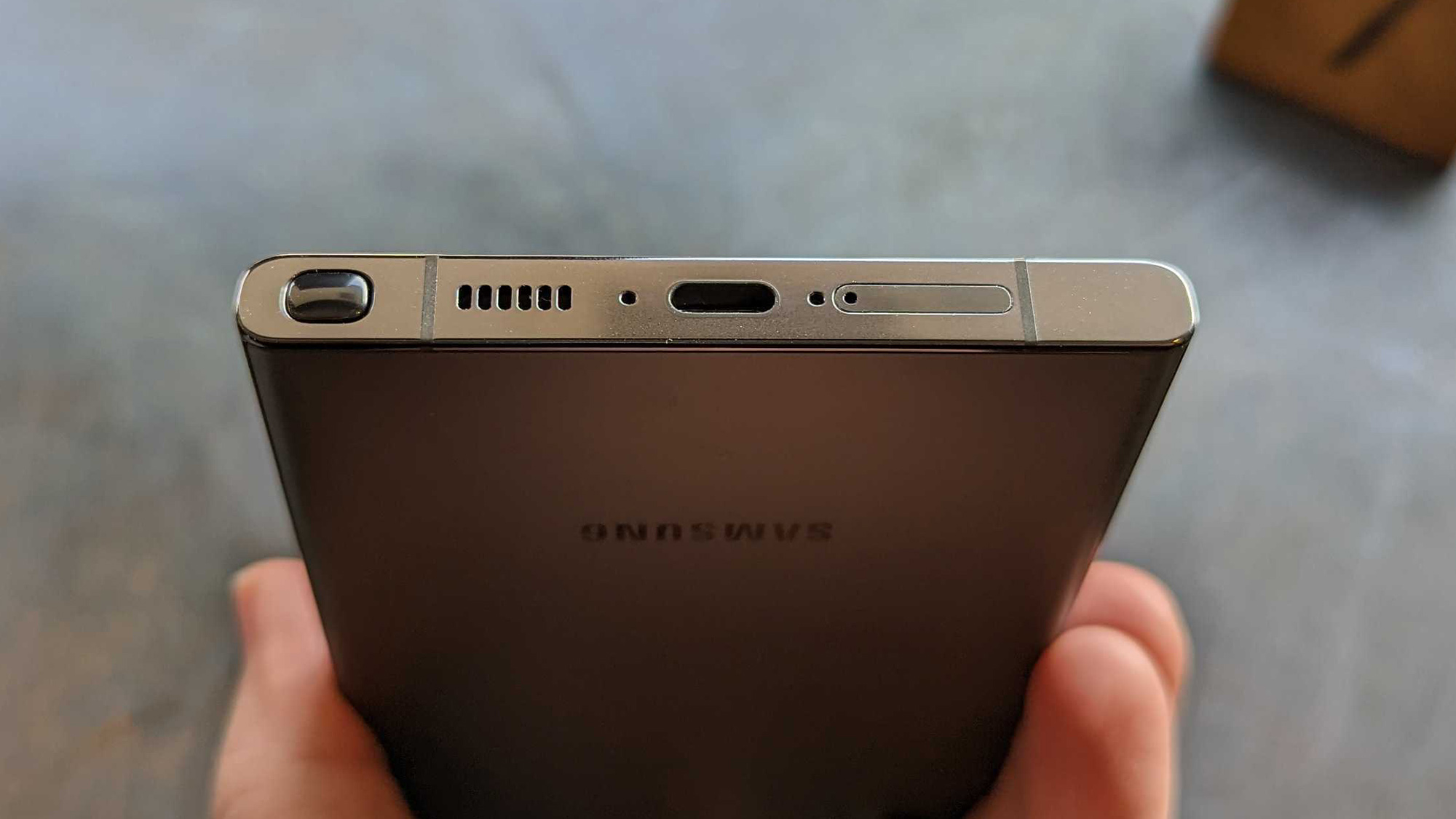
The Samsung Galaxy S23 Ultra holds a clear advantage when it comes to stamina. For one thing, it has a 5,000mAh battery, while the Fold 5 packs the same 4,400mAh battery as the Fold 4.
For another, the Galaxy S23 Ultra is driving a much smaller display, albeit a sharper one. Screens are invariably the biggest power hog in any phone.
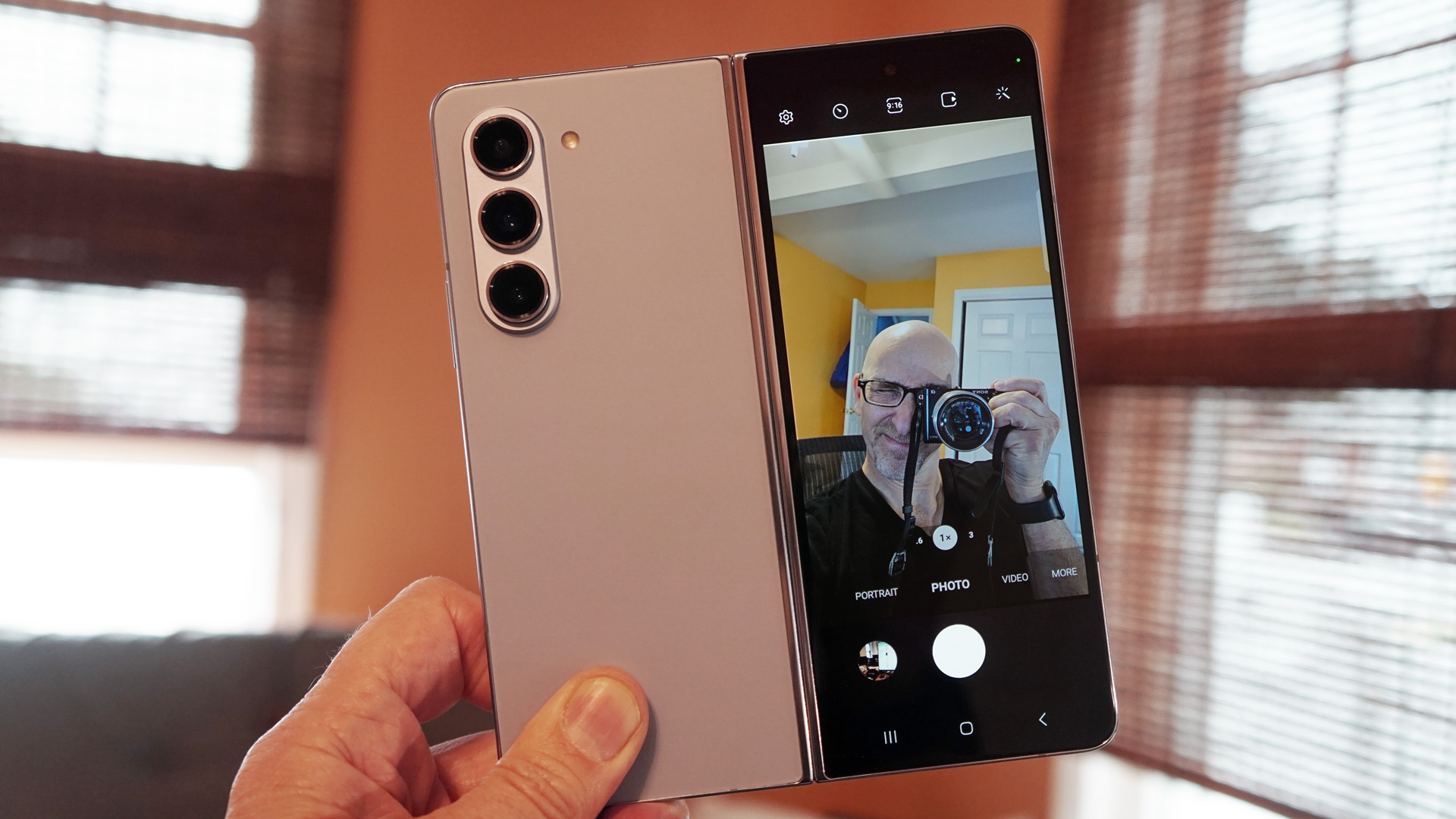
To illustrate that point, you only have to compare our experience of the Galaxy Z Fold 5's stamina with that of the Galaxy S23 Ultra. The Fold 5 lasted us just over a full day (15 hours) on a single charge, while the Galaxy S23 Ultra lasted a day and a half.
The Samsung Galaxy S23 Ultra win son charging speeds, too. While 45W isn’t the fastest on the market by any means, it beats the 25W charging of the Galaxy Z Fold 5 hands down.
Samsung Galaxy Z Fold 5 vs S23 Ultra: verdict
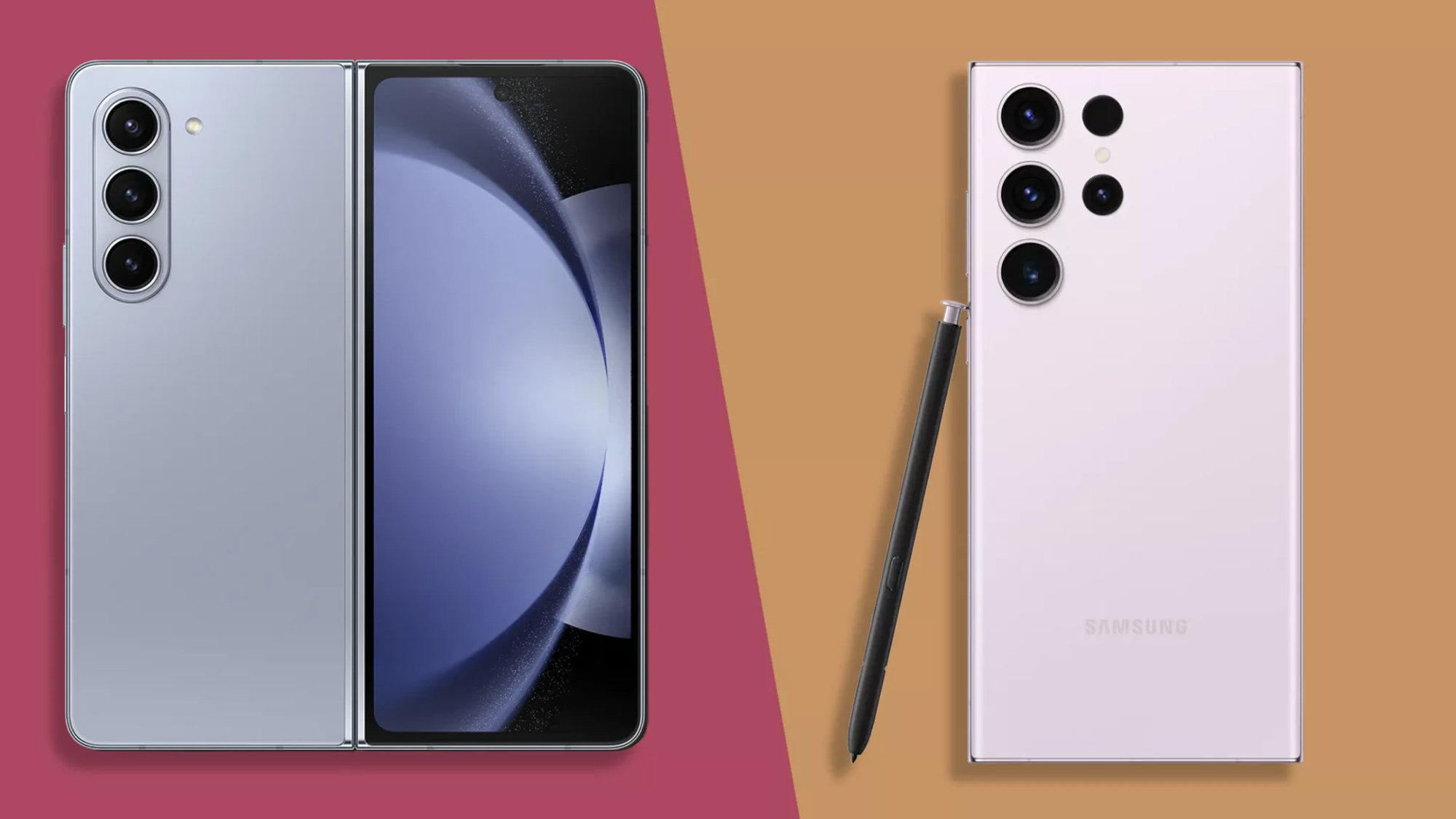
The Samsung Galaxy Z Fold 5 is the best full-sized foldable phone for most people. However, it doesn't come close to dethroning the Samsung Galaxy S23 Ultra as our pick for the best phone overall.
There’s a fundamental difference in form factors here, and foldable phones simply aren’t in the same place as regular smartphones. Regular phones have matured, offering few surprises or innovations, but at the same time few outright flaws. Foldables, meanwhile, are still finding their feet, offering bags of innovation and excitement, but also a heap of basic quality-of-life issues.
Besides simple monetary factors (on which the Galaxy S23 Ultra clearly wins), this comes down to what you want from your flagship phone. Do you want thrills and spills, or solid dependability? Do you prioritize the biggest display possible, or is the level of portability more important? How important is durability, camera quality, and battery life to you?
A head-to-head between the Galaxy Z Fold 5 and Galaxy S23 Ultra is a comparison of ideals and priorities as much as it is comparison of hardware, and as such, there isn't a definitive winner, per se.
Get daily insight, inspiration and deals in your inbox
Sign up for breaking news, reviews, opinion, top tech deals, and more.

Axel is TechRadar's UK-based Phones Editor, reporting on everything from the latest Apple developments to newest AI breakthroughs as part of the site's Mobile Computing vertical. Having previously written for publications including Esquire and FourFourTwo, Axel is well-versed in the applications of technology beyond the desktop, and his coverage extends from general reporting and analysis to in-depth interviews and opinion. Axel studied for a degree in English Literature at the University of Warwick before joining TechRadar in 2020, where he then earned an NCTJ qualification as part of the company’s inaugural digital training scheme.